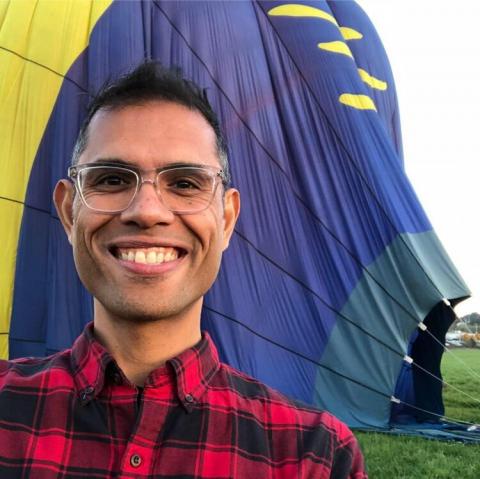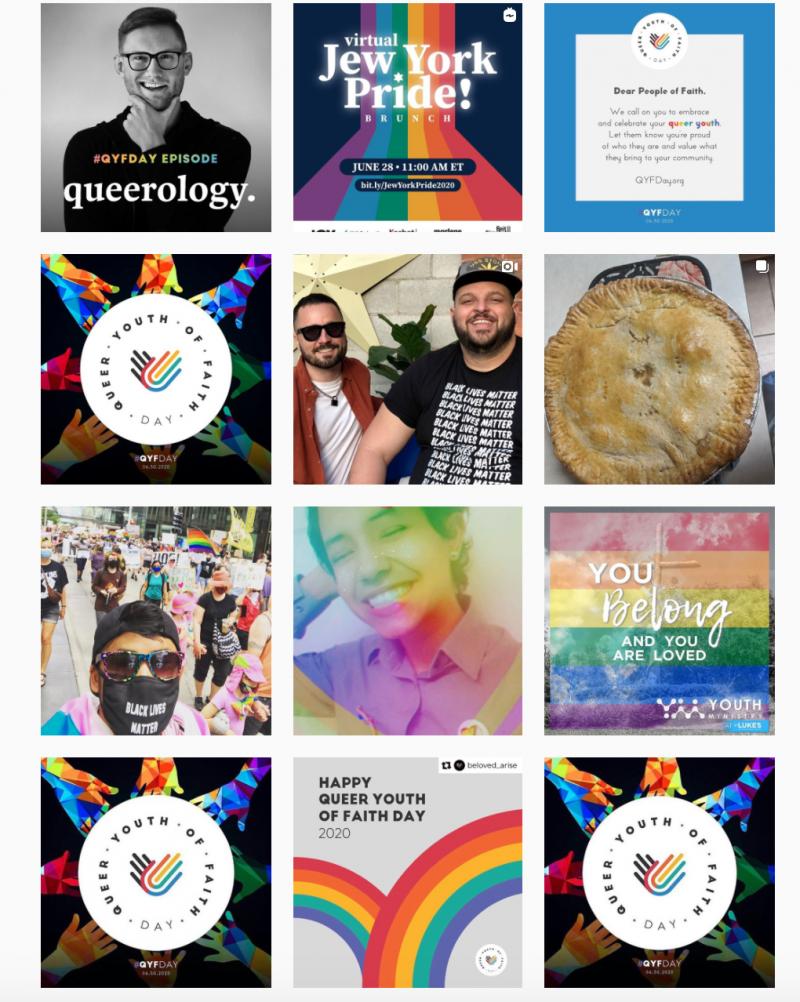Jun Young didn’t know that the story would run on the front page.
When he spoke with the Seattle Times reporter in 2018 about coming out as a gay man, and subsequently losing his invitation to serve a second term on the board of the Christian organization World Concern, he knew that the story would be made public. But not the front page.
Young saw the published story on his way out the door to go to church.
When he arrived at church, he sat where he always did. And just like every Sunday before, the pastor went to the pulpit and welcomed everybody.
“I’m sure many of you have read the front page of the newspaper this morning,” Young recounted the pastor saying. And then the pastor made an announcement: The church was not an affirming church.
“That was just a big blow to me that he chose that day to clarify that stance in a way that was really impersonal,” Young said. “And I know him. I've been to his house a number of times.”
The pastor’s statement that Sunday would trigger a series of changes in the Seattle church. But Young’s story would continue elsewhere.
A little over a year later, on Valentine’s Day of 2020, Young launched Beloved Arise, the first national Christian nonprofit focused on supporting LGBTQ+ youth.
One in three LGBTQ+ youth identify with a religion, Young said. Yet despite their prevalence, there are few organizations that support these young adults in the development of both their faith and their sexual and gender identity.
Now, Young said that he doesn’t think that his former pastor thought of the statement he made that Sunday in 2018 as harmful or hurtful.
“He just thought, well, no, I just want to say this out loud,” Young said. “And I think that’s where a lot of churches are at.”
Many church leaders will tell Young that they love their youth members and would never do or say anything to harm them.
“Here’s what I say to them: Queer people cannot feel safe or welcomed or even loved in a church that worships a god that is ashamed of queerness,” he said. “When we uphold a God who grieves queerness, queer people cannot feel safe.”
Through their digital platforms, Beloved Arise is working to counter that message, telling youth from New York to Hawaii that they are loved “with no caveats, limitations, or exceptions.” It’s why Young said they named the organization “Beloved Arise.”
jun.jpg

Sebastian discovered Beloved Arise while scrolling through Instagram from his home in Pennsylvania, and knew he wanted to join. But at 20 years of age, he didn’t know if there was a place for him in the youth-focused organization. When he got on the phone with Scott Gronholz, who oversees the Beloved Arise youth group, he was welcomed as a leader in the group.
Now, Sebastian meets weekly on Zoom with a group of teens across the country to facilitate conversations, listen to guest speakers, participate in worship, and play games.
“For me personally, I needed that when I was a teenager and I didn't have that outlet,” he said.
Gronholz said the youth group is nothing fancy.
“We just post screenshots of our worship lyrics onto our Instagram account,” he said laughing.
But the “secret to their success,” as he calls it, is the relationships that members of the group have formed across four different time zones.
While many churches and youth groups have struggled to adjust to digital platforms amid the pandemic, Beloved Arise’s digital-first model made them acutely prepared for the current moment. And for youth facing increased contact with family members unaccepting of their identity, the group has become an even more valuable resource. Up to 70 youth now join each week.
Gronholz comes from a line of youth pastors. His father was a youth pastor and his grandfather was the first international director of Young Life, an organization that has recently come under scrutiny for their anti-LGBTQ policies. In the past 24 hours, hundreds have shared their experiences with Young Life’s anti-LGBTQ actions on Twitter under the hashtag #DoBetterYoungLife.
My pain pales in comparison to many. The repercussions of @YoungLife’s policies are dangerous and deadly to youth who aren’t as lucky I am. I care about YL now because I care about queer youth who are at risk. (5/8)
— Kent Thomas, MSW (@KentThomasMSW) June 30, 2020
In Seattle, Gronholz was Young’s children’s youth pastor at the church they would both later leave.
When he left his position, Gronholz said he kept walking around saying he “wanted to be Seattle's youth pastor.”
“I think Jun really heard that and was like, well, let's make it happen,” he said.
The youth group they formed together is one that “makes space,” he said. Not just for youth of different gender and sexual identities, but also for youth of different denominations.
As someone tied to the Protestant Presbyterian Reform tradition, Gronholz said it’s been freeing to build an ecumenical group that makes space for everything from intellectual Protestant backgrounds to Pentecostal traditions.
“We know every kid that comes has a valid experience of God that we want to affirm and be curious about,” he said.
On June 30, on the last day of Pride Month in the United States, Beloved Arise expanded that vision even further by inviting youth and faith leaders from various religious traditions to join them in hosting the first ever Queer Youth of Faith Day.
“Community is advocacy. By our very existence, we proclaim something in the world,” said Bukola Landis-Aina, executive director of Q Christian Fellowship during the opening of the one-hour, live-streamed event that mixed storytelling, gift giveaways, prayers, and games. Organizers encouraged people to share photos on Instagram with the hashtag #QYFDay.
untitled.jpg

Young said there’s a perception that queer youth do not exist in faith communities. And, at the same time, a sense that LGTBQ+ communities do not have space for religious belief.
“I imagine these young people who live in this intersection of faith and queerness feeling pressure on both sides to let go of either of those identities,” he said.
Ramish, a youth member of Mulims for Progressive Values, said during Tuesday’s event that queer Muslims have always existed, even when not recognized in the existing narrative.
“As a queer Muslim, I think there’s a whole experience of colonization, of policing, of culture erasure, and a whole host of communal traumas that we’ve dealt with over the past couple hundred of years that continue into today,” they said. “They’ve erased so much of our culture, our religious history, especially as queer people of faith that have existed in these spaces.”
It is this erasure of narrative that makes storytelling an important component of Beloved Arise’s continued work.
“For most of queer history, many religious authorities have taken advantage of our communal and personal closets and used that silence to wield religion against us when we should really be in charge and in power of our own religious identities,” said Molly Meisels, a member of Jewish Queer Youth. “It’s not because there are more queer Jews now than there have been throughout history, but because people aren’t as afraid anymore because of events like this.”
Young hopes that the momentum built through the event will only continue to grow in the coming months and years at Beloved Arise.
Despite his own experience in 2018, he’s not in the business of debating church policy. While he does hope that churches will reconsider their policies, his focus is on something more urgent: keeping kids safe.
“I've heard so many stories of young people with experiences where they listen to the sermons, they listen to what’s said informally even, and they start formulating in their mind this picture of God, a God who hates them, who’s ashamed of them. And this becomes, of course, internalized homophobia,” he said. “And so even for churches that are not affirming, I still want those churches to acknowledge that LGBTQ youth do exist in your congregation, hearing these messages, and it’s causing harm.”
In an article published to Medium, Young offers six steps churches can take: 1) Be clear about your message to youth. 2) Denounce shaming and bullying. 3) Include LGBTQ youth safety in church protocols and procedures. 4) Offer guidance for kids and families in crisis. 5) Acknowledge differing viewpoints on LGBTQ inclusion. 6) Partner with affirming churches.
Young hopes that churches will take bold action. But in the meantime, Young said he will continue to carry out the work of making sure all queer youth of faith know they are beloved.
“My calling is to take care of the wounded,” he said. “Because we can’t wait until a church has changed.”
Got something to say about what you're reading? We value your feedback!







